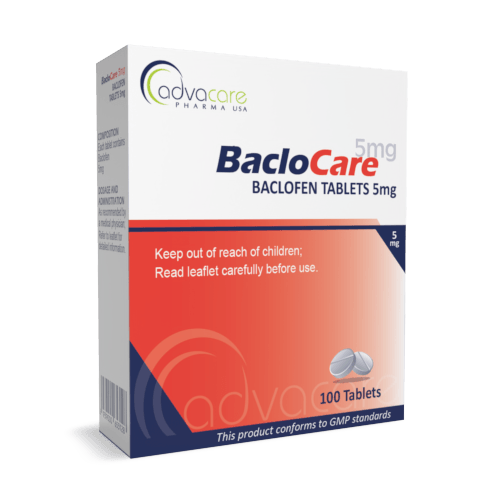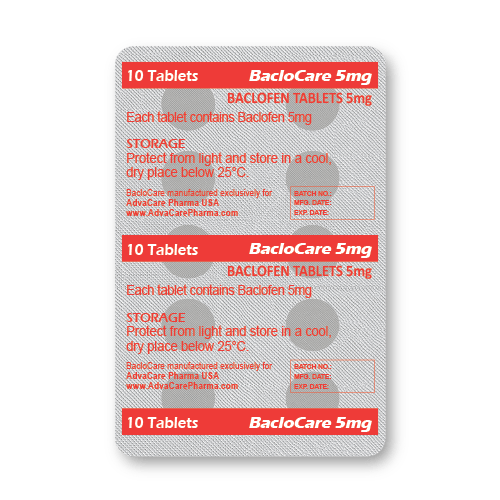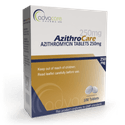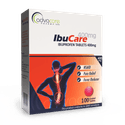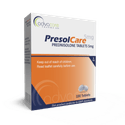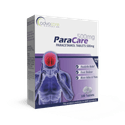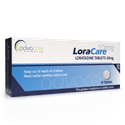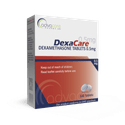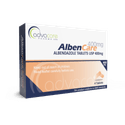- Home›
- Pharmaceuticals›
- Pharmaceutical Tablets›
- Baclofen Tablets
Baclofen Tablets
Dosage
Packaging
What is Baclofen?
Active Ingredients: Baclofen
Baclofen Tablets are an antispasmodic drug used to treat muscle pain, spasms, and stiffness. It is usually prescribed for conditions like multiple sclerosis, spinal cord injury, or other spinal cord diseases as it helps improve muscle movement and relieve pain caused by these issues in adults and children over 12.
Baclofen is classified as a skeletal muscle relaxant. It works by blocking certain reflexes in the nerves, which helps induce muscle relaxation.
This medication has the ability to inhibit both monosynaptic and polysynaptic reflexes within the spinal cord and this is potentially achieved through the hyperpolarization of afferent terminals. Its effects at higher brain centers might also influence in its therapeutic impact. Baclofen possesses general central nervous system depressant properties, manifested by sedation, tolerance development, drowsiness, impaired coordination, and respiratory and cardiovascular suppression. Its absorption and elimination are rapid and extensive, with absorption possibly influenced by dosage. Baclofen is primarily excreted unchanged via the kidneys, with variability in absorption and/or elimination among individuals depending on their current health status.
AdvaCare Pharma is a trusted global supplier of this medication. Baclofen Tablets are manufactured in GMP-certified facilities located in China, India, and the USA. These facilities are regularly audited to ensure they meet WHO's standards, rules, and regulations.
Why are we a leading Baclofen manufacturer?
Our entire range of pharmaceuticals, including these Baclofen Tablets, have been manufactured under strict GMP regulations.
AdvaCare Pharma, an American pharmaceutical company, is a Baclofen manufacturer offering over 200 high-quality and cost-effective oral solid pharmaceutical tablets to meet the needs of the global market. The extensive international network that we partner with includes pharmaceutical distributors, hospitals, pharmacies, and a variety of other institutions.
Uses
What is Baclofen used for?
It is used to treat muscle spasms, pain, and stiffness associated with conditions like multiple sclerosis, spinal cord injury or spinal cord disease.
How are Baclofen Tablets used?
This medication is intended to be taken orally. This drug should be taken as advised from a medical professional.
What dose should be taken?
Adult Dosing For spasticity, the usual dose for adults is 20-80mg, divided and taken once or twice per day.
Pediatric Dosing The recommendations for dosage adjustments for children are as follows:
- Children between 2 and 7 years old, the usual dose is 10-40mg per day, divided and taken once or twice per day
- Children between 8 and 11 years old, the usual dose is 10-60mg per day, divided and taken once or twice per day
- Children older than 12 years, the usual dose is 20-80mg per day, divided and taken as one or two doses per day
For intractable hiccups, one can start with a usual dose of 5-10mg taken twice per day. The dosage may be increased by 15mg every 3rd day. The maximum dosage is 75mg per day.
Refer to a doctor or pharmacist for more specific guidelines on dosage. Do not exceed what they advise.
Who can use Baclofen?
Baclofen can alleviate the signs and symptoms of spasticity in cases of multiple sclerosis. It is used for the relief of flexor spasms and concomitant pain, clonus, and muscular rigidity.
Patients should have reversible spasticity in order for baclofen treatment to be beneficial. Baclofen may also be beneficial for patients with spinal cord injuries and other spinal cord diseases. It is not indicated for treating skeletal muscle spasms resulting from rheumatic disorders.
The efficacy of Baclofen in conditions such as stroke, cerebral palsy, and Parkinson's disease has not been established, and it is not recommended for these conditions.
Special caution should be considered in the following groups of patients:
Pregnant This medication during pregnancy might lead to a neonatal withdrawal syndrome in the newborn. Inform your doctor if the baby has shakiness and tremors because this requires immediate medical attention.
Nursing This product should be given to nursing women only if the benefits outweigh the risks. Consult with a medical professional before taking Baclofen.
Pediatric There are not many studies performed in children younger than 12 years about the safety of baclofen. The safety and efficacy of Baclofen have not been well established for this group of patients. Consult with a healthcare professional before giving these tablets to a young patient.
Geriatric Older patients are more likely to have age-related liver, kidney, or heart problems. These patients need to be well-examined before giving these tablets. Side effects like confusion, hallucinations, or mental depression are more likely to happen to older patients. Geriatric patients are also more likely to experience severe drowsiness. These patients should consult with a healthcare professional before taking Baclofen.
What should be done in cases of Baclofen overdosage?
The most common signs and symptoms in cases of overdosage are vomiting, muscular hypotonia, drowsiness, accommodation disorders, coma, respiratory depression, and seizures. The treatment should be done by emptying the stomach by induced emesis followed by lavage. The airway of the patient should be secured with a cuffed endotracheal tube before beginning lavage. Adequate respiratory exchange must be maintained.
Other warnings
Hallucinations and seizures might occur on abrupt withdrawal of Baclofen. The dose should be reduced slowly when the drug is discontinued.
Baclofen is primarily excreted unchanged through the kidneys and it should be given with caution. In some cases, it may be necessary to reduce the dosage.
Patients with strokes have poor tolerability to the drug.
Baclofen can increase the incidence of omphaloceles (ventral hernias) in fetuses of rats given approximately 13 times the maximum dose recommended for human use.
Patients with allergies should inform their doctors before taking these tablets. If the patient develops an allergic reaction after taking this medication, they should inform a medical professional immediately. Very serious allergic reactions are rare, but they include rash, itching, swelling (especially on the face, tongue, or throat), severe dizziness, and trouble breathing.
Inform your doctor about any prescribed or unprescribed drugs you are taking before you start the treatment with Baclofen to avoid side effects.
Side Effects
As with all pharmaceuticals, some unwanted effects can occur from the use of Baclofen Tablets.
Common side effects include, but may not be limited to:
- drowsiness, tiredness, dizziness
- headache
- insomnia
- nausea or constipation
- frequent urination
Seek medical attention if the following develop:
- severe insomnia
- itching, tingling or twitching in the hands, arms, feet, or legs
- fever
- seizure
The most common side effect is transient drowsiness (10-63%).
Neuropsychiatric side effects include confusion (1-11%), headache (4-8%), insomnia (2-7%); and rarely, euphoria, excitement, depression, hallucinations, paresthesia, muscle pain, tinnitus, slurred speech, coordination disorder, tremor, rigidity, dystonia, ataxia, blurred vision, nystagmus, strabismus, miosis, mydriasis, diplopia, dysarthria, epileptic seizure.
Cardiovascular side effects include hypotension (0-9%) and there are rare cases of dyspnea, palpitation, chest pain, and syncope.
Gastrointestinal side effects include nausea (4-12%), constipation (2-6%). Rare gastrointestinal side effects are dry mouth, anorexia, taste disorder, abdominal pain, vomiting, diarrhea, and a positive test for occult blood in stool.
Urinary side effects occur rarely (2-6% of patients) and the most common are enuresis, urinary retention, dysuria, impotence, inability to ejaculate, nocturia, and hematuria.
Other side effects include rash, pruritus, ankle edema, excessive perspiration, weight gain, and nasal congestion. Some CNS and genitourinary symptoms may be related to the underlying disease rather than the drug itself. Laboratory abnormalities observed in a few patients taking baclofen include increased SGOT, elevated alkaline phosphatase, and elevated blood sugar levels.
For a comprehensive understanding of all potential side effects, consult a medical professional.
If any symptoms persist or worsen, or you notice any other symptoms, please call your doctor immediately.
Precautions
Do NOT use Baclofen Tablets if: • You are allergic or hypersensitive to any of the ingredients.
This medication may not be suitable for people with certain conditions, including:
- mental illness
- psychosis
- nervous system disorder
- a seizure disorder, such as epilepsy
- stroke
- blood clots
- kidney disease
This medicine should only be used during pregnancy and breastfeeding if the benefits outweigh the risks. Newborns and nursing babies may experience withdrawal symptoms. It is important to consult a doctor or healthcare professional before treatment. Patients should inform their doctors if they are pregnant, planning to get pregnant, or breastfeeding.
Many drugs are known to interact with baclofen, including opioid medicines, sleeping pills, other muscle relaxers, anxiety medicines, and seizure medicines.
Do not drink alcohol while undergoing treatment with this medicine. Avoid driving until the effects of the medicine are clear.
There are not many studies that provide information about the safety of baclofen to children younger than 12 years and it is generally not recommended for children, only when clearly needed.
This drug has the possibility of sedation and patients can have difficulties when operating automobiles and other dangerous machinery. They can also have decreased alertness.
In patients with epilepsy, regular monitoring of clinical state and electroencephalogram (EEG) is recommended, as occasional deterioration in seizure control and EEG changes have been reported in those taking baclofen.
Baclofen 10mg: Why the most common dose?
Baclofen 10mg is frequently chosen for its efficacy in controlling muscle spasticity while maintaining a favorable side effect profile. Clinical evidence supports its use as an effective treatment. Other available doses include Baclofen 5mg and Baclofen 20mg to accommodate varying patient needs.
References
Baclofen for spasticity in multiple sclerosis Double‐blind crossover and three‐year study
This study evaluates the safety and effectiveness of baclofen in treating spasticity associated with multiple sclerosis.
It reveals that it is not toxic on hepatologic, hematopoietic, or renal function, acutely or for over 3-years of follow-up. It can reduce spasms, and clonus, and can improve joint movement for a prolonged period. For disabled patients, treatment with this drug can lead to symptomatic relief of painful spasms and can improve mobility.
The conclusion of this 3-year follow-up is that baclofen can reach optimum effect when given in the early stages of a disease.

You might be interested in...
Why AdvaCare Pharma?
As an industry leader, we are aware of our responsibility to provide affordable and sustainable solutions to improve healthcare worldwide.
